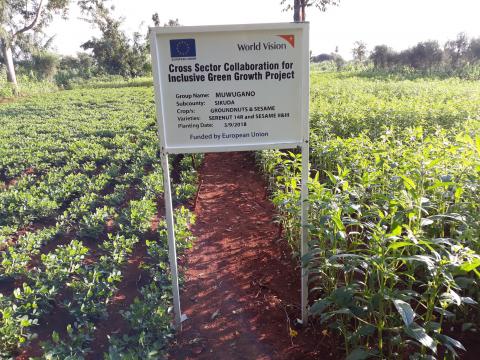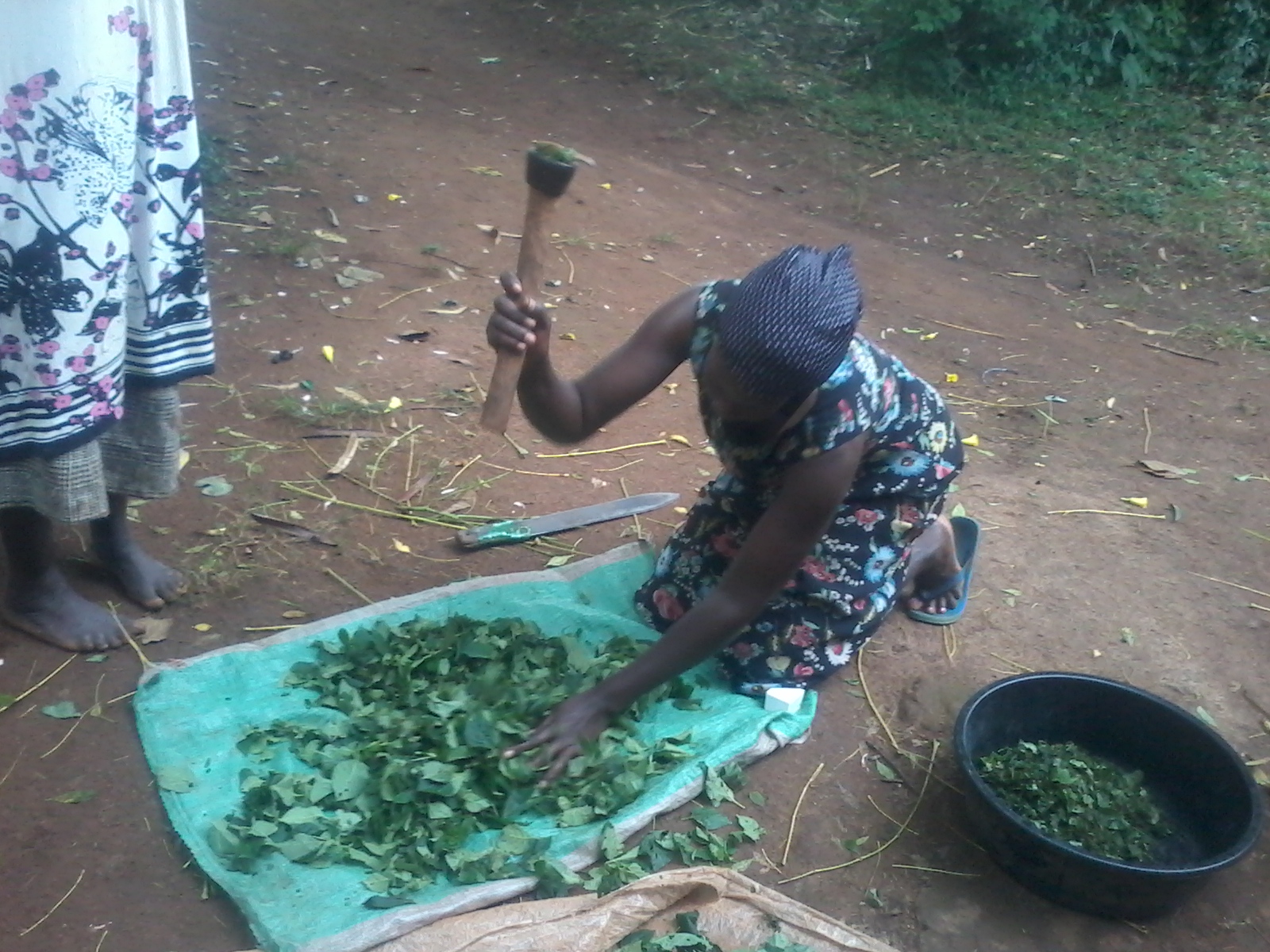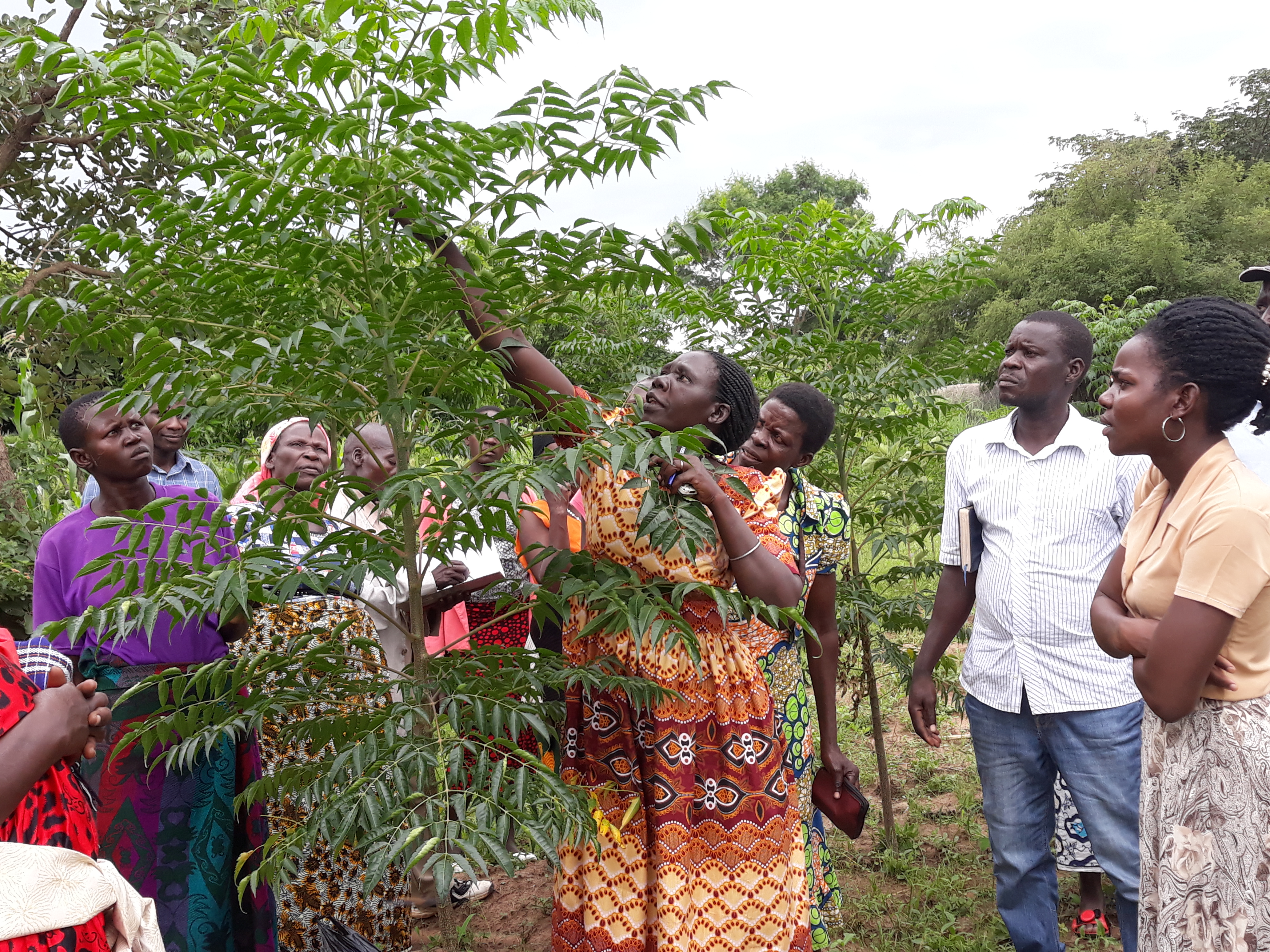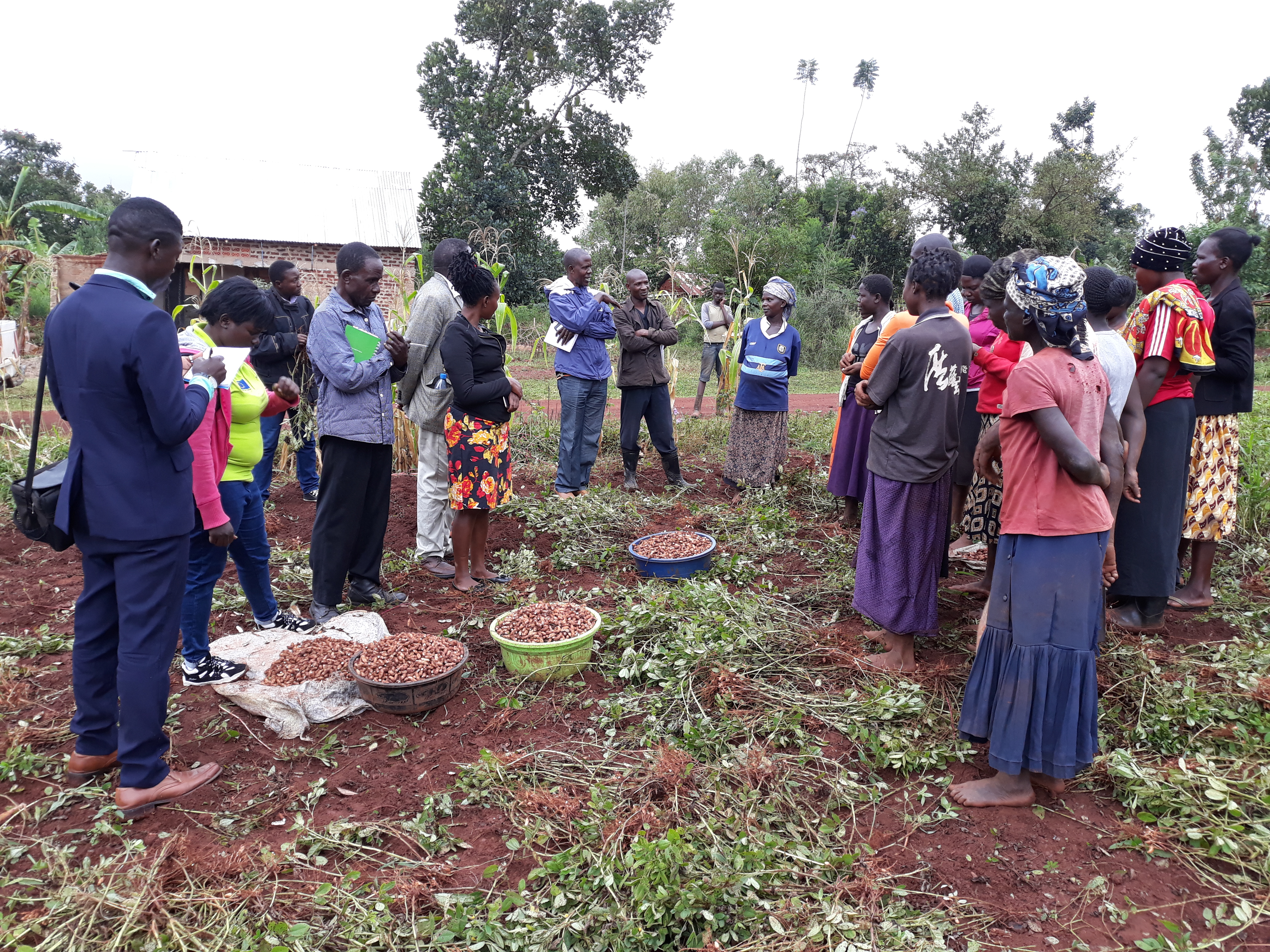Farmers Adopt the Use of Organic Pesticides, Boost Production

By Fred Ouma, Development Communications Coordinator, World Vision, Uganda

Elizabeth Akumu all smiles as she shows me how she is now an expert at getting rid of the annoying insects and bugs that used to destroy her crops. She uses a mixture of herbs and shrubs that she picked from her garden and the nearby bushes.
In 2018, through a European Union-funded project, World Vision organised field farmer school sessions for 5,611 farmers from 204 farmer groups in eight sub-counties of Sop Sop, Paya, Kirewa, Nabuyoga, Busitema, Sikuda, Lunyo, and Busime in Uganda.
The Green Growth Project trained the farmers in organic farming practices that included: crop rotation, green manures and compost, biological pest control and mechanical cultivation.
Elizabeth, a 45-year-old mother of four, from Sop Sop sub-county, Tororo district, Eastern Uganda, was one of the beneficiaries. Like many farmers, the training transformed her life.
I picked interest in the biological pest control component because our biggest challenge, as farmers, was pests and diseases that were getting out of hand. Yet, we learned that those chemicals we buy from shops are poisonous and cause more harm than good. And, even if they were not [harmful], we couldn’t afford [them].
The pests frequently destroyed her crops. Before the training, groundnuts yields for most varieties ranged between 130-180 KGs per acre, far below the recommended average of 400-600 KGs per acre.
Elizabeth attributes low yields to crop pests and disease coupled with declining soil fertility as well as poor farming methods, like broadcasting of seeds and the cultivation of a single crop on the same land for too long.
Besides working as a medicine against pests and diseases, Elizabeth says that the mixture is also an organic fertilizer. “When we make these concoctions we end up with both a pesticide and organic fertilizer. It’s like we’re killing more than one bird with just one stone,” she says, with the dexterity of an expert farmer.
Equipped with knowledge and skills on how to make pesticide concoctions from locally-available plants and herbs, such as blackjack, red pepper, plant leaves, wild sunflowers and ashes, Elizabeth did not waste time. “After the training, I was among the first farmers in my community who adopted the making and use of organic pesticides. I was just tired of working for stubborn bugs and in the end, I get nothing,” says Elizabeth.
And from adopting organic farming, including the use of organic manure and biopesticides, many farmers from the eight beneficiary sub-counties have registered a significant increase in the crop yield.
During the second season of 2018, for example, Elizabeth implemented what she had learned in the farmer trainings. Her harvest more than doubled. From one acre, she was able to harvest 480 KG of groundnuts.
For the first time, I was proud of being a farmer. I had got something worth the sweat,” she says with a smile.
Success replicated

Elizabeth is not the only delighted farmer. Her success is shared and replicated among other farmers practicing proper organic farming in both Busia and Tororo districts with individual harvests per acre ranging between 300-500kgs.
Eunice Awora is another meticulous farmer who does not let anything in her garden or home go to waste.
Before I received the training on best farming practices, I didn’t know plants enjoy drinking tea, which is cheap and easy to make. I can now turn anything from animal and bird droppings to peels, grass, weeds and leafy shrubs into green manure,” Eunice says exuding the confidence of an expert.
The 36-year old mother of five from Kirewa sub-county in Tororo district is an indefatigable model farmer whose home is frequented by other farmers seeking to learn from her.
“The [Green Growth] project has been very helpful to us. It helped us to use what we already had to improve on our crop production and protect the environment at the same time for our children and their children,” says Eunice, who belongs to a 30-member African Woman Farmers Group.
Eunice is also a model farmer and the biggest producer of yams in Kirewa sub-county. “I make a lot of money by roasting and selling the yams. I also supply restaurants and neighbours. With all these resources, I am able to provide adequate food for my family throughout the year, a thing that was not possible before I received the training,” she says.
Like Eunice, Elizabeth says she now earns enough to sustain her own family in terms of food security and basic family needs, including paying school dues for all her four children. "There was a time when it was hard to have a nutritious meal, leave alone keep a child at school. As a family, I confess we are long past that time. We are in good times after our production has been boosted through organic farming practices," says Akumu.
A recent World Vision evaluation shows an increase in the number of households practicing organic farming from 49% in 2018 to 66% to-date.
Learn more about the work World Vision is doing in Uganda to help families improve their livelihoods and resilience in order to mee the needs of their children.

Busia district production officials interacting with Buchicha Bidi Women Group supported by the Green Growth Project.